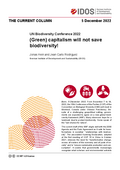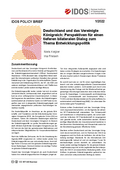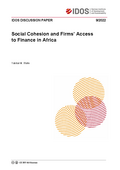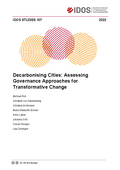-

Publications
Photo: www.shutterstock.com/de/image-photo/pont-du-gard-old-roman-aqueduct-45688924
Publications
The German Institute of Development and Sustainability (IDOS) publishes four independent publication series. IDOS researchers publish their current research results in Discussion Papers, Policy Briefs and Studies. Visiting scholars and cooperation partners also have the opportunity to publish their research results in one of the IDOS series. Publications from the series Analysen und Stellungnahmen, Briefing Paper and Two-Pager / Zweiseiter, which will be discontinued in 2022, will continue to be available online. The fourth publication series is for opinion pieces: The Current Column regularly comments on the latest developments and issues in international development policy.
IDOS researchers also regularly publish their research results in peer-reviewed and non-peer-reviewed German and international journals and publication series of other research institutes and institutions as well as with renowned book publishers. In addition, they use blogs and online platforms of partner institutions to communicate the Institute's research and advisory activities to an interested public.
Found 9409 results in 6 milliseconds. Displaying results 11 to 20 of 9409.
-
Aid for trade and export performance of recipient countries: the moderating role of institutions
-
German development policy – between global needs and national debates
-
German support for Israel’s government damages the rules-based order
-
Why Zimbabweans choose to migrate or stay
-
Supporting the Paris Agreement through international cooperation: potential contributions, institutional robustness, and progress of Glasgow climate initiatives
-
The impact of shock-responsive social cash transfers: evidence from an aggregate shock in Kenya
-
Tackling the Epidemic of Informal Employment and Low-Paying Work
-
The dream of dictatorship
-
Resume support for the agency for Palestine refugees
-
Vereinte Nationen und Umwelt













